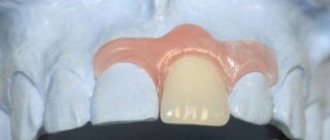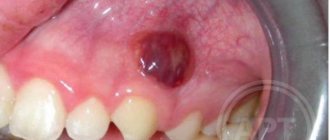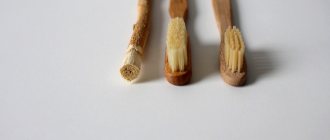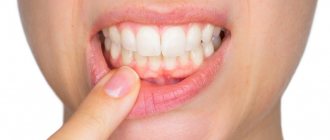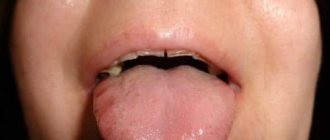Medicinal herbs and decoctions will help to completely get rid of a mild form of the disease, as well as at the very beginning of the development of the disease.
It is necessary to remember: herbal decoctions and infusions are also medicine; they should be used only after consultation with a doctor.
There are forms of the disease that cannot be treated without antibiotics and other medications. Therefore, folk methods and recipes for the treatment of stomatitis are of an auxiliary nature.
Treatment with honey and propolis
Propolis has unique antibacterial and anti-inflammatory properties. An alcohol tincture of propolis for stomatitis allows you to get rid of the resulting aphthae. The drug not only disinfects, but also anesthetizes the inflamed surface.
It is necessary to dissolve a teaspoon of the medicine in a glass of warm water, rinse the mouth with the resulting solution or use it for applications and lubrication of ulcers. It is advisable to first disinfect the affected area with hydrogen peroxide, and then apply propolis.
The medicine is used for:
- rinsing;
- applications;
- wiping.
It is strictly forbidden to apply alcohol tincture directly to canker sores!
Honey has powerful antiseptic properties and is included in many proven folk remedies. However, among doctors there is no clear answer to the question of how to treat and whether stomatitis can be treated with honey. It is believed that it can promote the proliferation of pathogenic bacteria.
Honey is most often used to treat diseases in children.
One of the most popular recipes is the egg-honey mixture. To prepare it you need to take:
- one egg (white);
- a teaspoon of honey;
- 1 ampoule of novocaine;
- one ampoule of vitamin B1 and B6.
Beat the resulting mixture well, take 1 tablespoon orally before meals, keep this portion in your mouth until completely absorbed.
How to get rid of sores in the mouth?
Stomatitis wounds that occur in the human mouth, in most cases, heal on their own within 7-10 days after formation. But timely treatment of aphthous stomatitis is necessary in order to prevent the formation of ulcers on the human oral mucosa again. The fact is that the acute form of stomatitis, which is characterized by the sudden appearance of wounds of various sizes on the upper and lower palate in a person’s mouth, if the problem is ignored or the wrong treatment is carried out, tends to develop into a chronic form of the disease. Wounds in the oral cavity with chronic stomatitis appear periodically and bother a person from time to time throughout life.
To exclude the possibility of aphthous stomatitis ulcers reoccurring, dentists perform the following treatment:
Local therapy
. It involves treating wounds on the oral mucosa with antiseptic agents: gels, ointments or sprays. During this treatment of stomatitis, a person is prescribed daily rinses with solutions such as furatsilin, chlorhexidine, miramistin, etc.
General therapy.
It includes a set of measures to cure this disease and at the same time strengthen the body. To strengthen the body, the doctor prescribes immunomodulatory drugs and vitamin courses to the person. To combat aphthous stomatitis, different drugs are used, depending on the nature of the disease and the causes of its occurrence: antihistamines, antivirals, steroids or antibiotics.
The selection of funds for the treatment of wounds with aphthous stomatitis is carried out only by a doctor and occurs after a visual examination of the person’s oral cavity, conducting the necessary diagnostic tests and making a diagnosis. The LeaderStom Clinic offers to use the services of our experienced doctors to carry out these operations.
Herbal infusions
In modern herbal medicine, both herbal decoctions (chamomile, sage, yarrow, oak bark) and tinctures (calendula, propolis) are used to successfully treat oral diseases. Traditional methods of treating stomatitis allow you to:
- relieve inflammation of the mucous membrane;
- reduce pain and swelling;
- relieve itching, reduce burning sensation;
- cure ulcers (aphthae) formed on the surface of the mucous membrane;
- improve the patient’s overall well-being;
- prevent relapses of the disease.
Chamomile, aloe, sage, oak bark for stomatitis can significantly reduce swelling and soreness of the mucous membrane, and prevent the development of the inflammatory process. They have an anti-inflammatory effect.
Herbal infusions can be used either alone or in combination with traditional medicines.
- Decoctions . To prepare them, you need to grind the herb in a coffee grinder, pour boiling water over it in a certain proportion, boil for at least 10 minutes, and then leave to infuse. A decoction is prepared from one plant (for example, chamomile, calendula, sage, St. John's wort) or from several (herbal mixture). After infusion, it should be strained and stored in the refrigerator for no more than three days. In the treatment of oral diseases, decoctions of chamomile, yarrow, sage, calendula, and cinquefoil are most often used. It should be remembered that when treating stomatitis with herbs, the therapeutic effect does not occur immediately, but 1-3 weeks after the start of therapy. Therefore, the patient must tune in to a long-term regular process.
- Infusions . They are prepared in much the same way, only they should not be boiled. Usually the herbal mixture is poured with boiling water, tightly closed and infused, after which it is filtered. It should be stored in the refrigerator and diluted with water before use. Infusions are prepared from the same herbs as decoctions. You can infuse herbs not with water, but with alcohol. They have a powerful antiseptic and anti-inflammatory effect.
- Solutions . Medicinal solutions are prepared immediately before use; their preparation consists of diluting the finished product with boiled water to obtain the required consistency. In no case should you apply undiluted alcohol infusions to the surface affected by stomatitis, as there is a high probability of getting a burn to the mucous membrane.
What can be done to prevent sores in the mouth from appearing again?
Completing a course of timely treatment for aphthous stomatitis will reduce the risk of a similar disease of the human oral mucosa in the future, but in some cases it will not completely eliminate this possibility. This especially applies to situations where a person has a hereditary tendency to develop aphthous sores in the mouth, suffers from autoimmune diseases, and is prone to allergies.
In such cases, preventive measures are required:
- Enhanced oral hygiene. It involves not only daily brushing of a person’s teeth and gums twice a day, but also rinsing the oral mucosa with solutions of antiseptics or medicinal herbs in order to prevent stomatitis.
- Balanced diet. Reviewing the diet and diet will help saturate the human body with essential vitamins and microelements and reduce the risk of allergies that can cause aphthous wounds in the human mouth.
- Taking vitamin complexes. If it is not possible to compensate for the lack of nutrients in the body with nutrition, then to prevent stomatitis a person can regularly take vitamin complexes, the composition of which, doses and duration of administration will be determined by your attending physician, based on the results of the tests.
- Taking immunomodulatory drugs. Today, there are many remedies that stimulate the immune system and encourage the body to resist diseases. They can be either of plant origin or synthesized in the laboratory. The selection of such drugs is individual for each person and is carried out by a doctor.
- Compliance with preventive measures, timely treatment of the disease and following the recommendations of the attending physician will help a person avoid relapses of aphthous stomatitis and the reappearance of wounds in the mouth in the future. Be attentive to yourself and your health, listen to the signals that your body gives, and at the first signs of disease in the oral mucosa, seek help from a dentist.
You should not self-medicate stomatitis and use the advice of friends or information found on the Internet, since the exact cause of sores in the mouth and stomatitis can only be identified through diagnostic methods. And the selection of treatment is determined in accordance with the diagnosis, and in each case it is individual. Dentistry "LeaderStom" offers its assistance in the treatment of aphthous stomatitis and other diseases of the oral mucosa. Contact us and we will help you identify the cause of the disease and select medications accordingly.
Folk remedies for stomatitis in children
Treatment of stomatitis in children with folk remedies involves the following measures:
- rinsing with antiseptic solutions;
- wiping the affected surface of the mucous membrane with medicinal decoctions;
- applying medicinal mixtures to the surface of the ulcers.
For rinsing it is best to use:
- water-soda solution (1 teaspoon of soda per 1 glass of water);
- decoction of calendula or chamomile flowers.
Suitable for wiping:
- propolis tincture solution;
- calendula tincture solution;
- freshly squeezed aloe juice.
Apply to the surface of the ulcers:
- honey;
- egg white;
- rose jam;
- a mixture of egg white, honey and novocaine.
The drugs are applied to the surface of the mucous membrane until completely absorbed.
What to do if your denture rubs
It’s not just the first days of installation that are difficult for many patients. Often, removable dentures constantly rub against the gums due to their irregular shape. In this case, therapeutic treatment will not be successful, so dentists carry out a correction or a complete change of the prosthesis.
The plate is filed at the points of contact with the mucous membrane. Thus, the load on the gums will be redistributed and the problem will be solved.
After the manipulations, the specialist recommends a remedy to relieve inflammation caused by rubbing. For example, a gel for lubricating gums. It is important to see a doctor immediately, otherwise complications are possible - inflammation of the inner layers of the jaw apparatus, healthy periodontal tissues.
Features of the treatment of aphthous and candidal stomatitis
- In the aphthous form of stomatitis, painful ulcers (aphthae) form in the patient's mouth. To prevent the development of the inflammatory process, it is extremely important to maintain cleanliness. It is necessary to rinse your mouth with a soda solution after each meal. You can use a solution of hydrogen peroxide or propolis for rinsing.
- Thrush, or candidal stomatitis, is a fungal disease that most often affects children. A white cheesy coating forms on the surface of the mucous membrane, the patient complains of itching and burning. At the initial stage of development of the disease, you can get rid of its symptoms with the help of homeopathy.
Note that in adults, folk remedies for stomatitis are practically no different from children’s, except that the proportion of dilution of solutions for children is somewhat different. Typically, half the “adult dose” is used for children.
Why do gums hurt under dentures?
Among the main reasons influencing the development of gum pain after prosthetics are:
- Incorrectly installed prosthesis. Errors in choosing the size and shape of the structure cause discomfort. Crowns press and rub the gums. The situation is aggravated by the fact that with frequent consumption of solid foods, toffees and other foods, the position of the structure changes, which causes chafing and wounds on the mucous membrane.
- Allergic reaction. Intoxication occurs if the patient has a tendency to be allergic to cobalt, copper, chromium, nickel and metal alloys. It is also enhanced when installing metal ceramics.
- The case is dangerous. If assistance is not provided in a timely manner, there is a risk of developing Quincke's edema.
- Diseases of the gums, mouth and teeth. If a foreign object is installed during an infection of the oral cavity, the disease can develop into gingivitis, fungal stomatitis, cyst, candidiasis, caries. Symptoms may vary. For example, soft plaque accumulates under the denture; when you press the plate, the pain intensifies, the gums bleed and swell. Periodontal tissues are deeply affected, and ulcers appear on the alveolar processes.
Contraindications
Rinsing with decoctions and tinctures is contraindicated for periodontal disease and allergic reactions. Ointments are not recommended for use during the third trimester of pregnancy, for gastritis with high acidity, and allergies.
Children under 3 years of age can be prescribed treatment only after consultation with a doctor due to the possible presence of latent diathesis. It is necessary to carefully consider whether the use of honey in this case is justified.
Does honey help with stomatitis? If you follow all the recommendations and advice, and do not exceed the permissible frequency and duration of treatment procedures, then a unique beekeeping product can be an excellent tool in the fight against the disease.
Definition of disease. Causes of the disease
Stomatitis is an inflammation of the oral mucosa.
This disease is characterized by all the signs of an inflammatory process: redness, pain, swelling, dysfunction, increased local and general body temperature. Stomatitis can occur on the mucous membrane of any part of the oral cavity: on the gum, on the tongue, on the mucous membrane of the palate, in the vestibule of the oral cavity, in the retromolar fossa, on the mucous membrane of the cheeks and lips. The disease can manifest itself in a variety of forms: it can be redness of the mucous membrane in a certain area or the appearance of ulcers in the mouth. Stomatitis manifests itself with decreased immunity and chronic diseases, and stomatitis can also develop as a protective reaction of the body to the action of various irritants (for example, mechanical trauma to the mucous membrane from the sharp edges of teeth).
Inflammation of the oral mucosa occurs in most cases in children [12]. But recently, stomatitis has also appeared in the adult population. This is mainly due to the weakening of a person’s immunity, for example, with acute respiratory viral infections, chronic diseases, and HIV infection.
Features of use by children
Treatment of stomatitis with honey in children has its own characteristics. They are afraid of any procedures that bring unpleasant or painful sensations, they move their hand with bitter medicine to the side, refuse to open their mouth, and cry. Due to the sweet taste of honey, children, as a rule, willingly agree to be treated with it.
If older children, having stomatitis, can tell their parents about the feeling of discomfort that has arisen, then infants cannot do this. Its appearance can be determined by the following symptoms:
- the newborn becomes restless and cries constantly;
- the baby loses his appetite and does not suckle at his mother’s breast;
- there may be an increase in temperature;
- redness and ulcers are noticeable in the mouth; with candidal stomatitis, there is a white coating on the tongue.
If you notice such symptoms, you should definitely contact your pediatrician.
Important! Before starting treatment, make sure you are not allergic to honey. Apply a small amount of product to the inside of your elbow. If after 5 minutes no red spots or rash appear, feel free to include it in the list of acceptable remedies.

